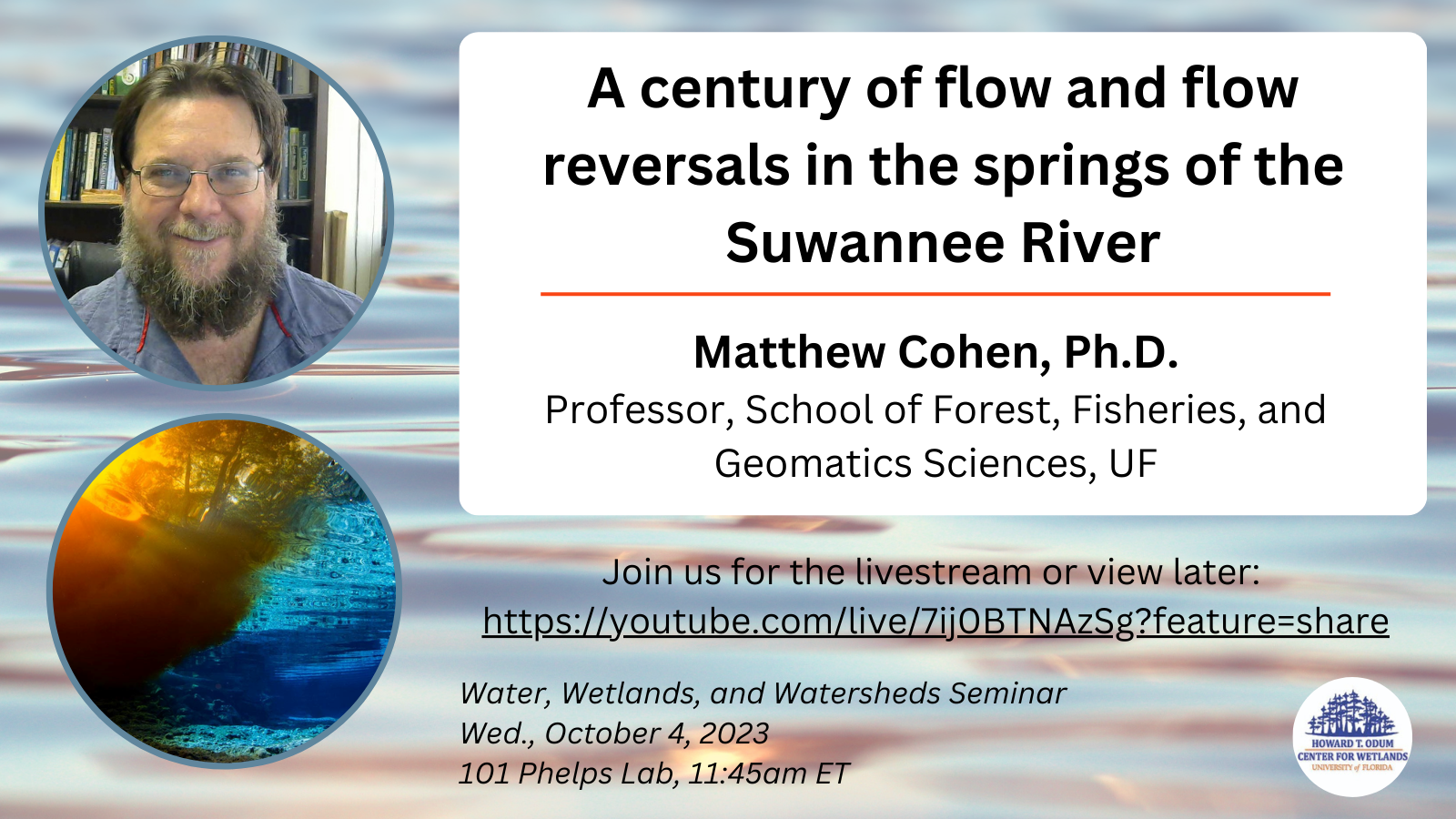
Matthew Cohen, Professor, School of Forest, Fisheries, and Geomatics Sciences, UF
Join us for the livestream October 4th, 11:45am ET: https://youtube.com/live/7ij0BTNAzSg?feature=share.
(Please visit our YouTube channel main page for the stream if there are any issues with the direct link.)
ABSTRACT
The artesian springs of the Suwannee River system represent discrete outlet points of clear, alkaline groundwater from the Floridan. Darkly stained and acidic floodwaters from the upper Suwannee Basin can reverse the direction of flow in the springs, pushing water with profoundly different properties into the aquifer during floods. That water is held in bank storage and then released as flood stage abates. These reversal events are geologically and ecologically important , responsible for dissolution of large cave and conduit systems in the carbonate rocks, and for significant ecological disturbances that impact light regimes, organic matter supply, and nutrient availability in the spring ecosystem. The that flow reversals play in organizing these iconic ecosystems remains poorly understood, in part because it is hard to reconstruct historical patterns of incidence, duration, and magnitude. Using a nearly 100-yr time series of flows at discrete locations along the Suwannee River, we use a novel gage-to-gage discharge analysis to reconstruct the magnitude of flow gain (springs flow) under normal river flow conditions, the timing of flow reversals and attendant volume of bank storage, and the changing incidence and frequency of these events. Our results show that flow reversals have been a feature of the river-aquifer interactions over the entire period of record, that climate is the dominant control on reversal incidence and magnitude, and that the volume of water stored in the karst aquifer during floods represents a sizable fraction of total river flow. While flow from both the springs and the upper river basin have dramatically declined in the last 25 years, the incidence of flow reversals has not systematically changed. These results provide an invaluable long term perspective on an important phenomenon that helps managers understand the flow regimes of this complex river network, and thus predict the effects of changing hydroclimatic regimes on the dynamics of these disturbances and their ecological impacts.
BIO
Matt Cohen has been a Professor in the School of Forest. Fisheries and Geomatics Sciences at the University of Florida since 2006. His research and teaching focus on hydrologic and ecosystem science. He was trained as an environmental engineer, with degrees from Swarthmore College and the University of Florida (Center for Wetlands), and has always had a passion for environmental systems science, particularly as it applies to water. His research has explored the health and function of Florida’s forest and aquatic ecosystems, ranging from geographically isolated wetlands, to small blackwater streams to the iconic Floridan aquifer karst springs. Recent projects have worked with forest industry, water management agencies, to better understand stewardship of our most valuable natural resource, our water.
POSTCARD
